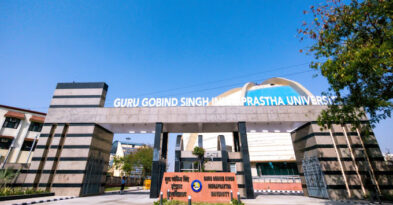28May

Pursuing a PhD is a life-changing decision that demands years of dedication, intellectual stamina, and emotional resilience. It’s not just another academic degree—it’s a commitment to pushing the boundaries of knowledge in a specific field. But should you do a PhD? Before you invest your time, energy, and resources into a PhD program, ask yourself these 10 critical questions. Whether you’re a recent graduate, a working professional, or someone passionate about research, this guide will help you decide: explore other rewarding paths instead?

This is the most important question. Is it because you love research? Do you want to become a university professor? Are you hoping to advance your career or switch to academia?
Many students pursue a PhD without a clear purpose, driven by vague goals like “It seems like the next step” or “It sounds prestigious.” But a PhD should be a strategic decision, not a fallback plan. Clarify your motivations—academic, personal, and professional—before taking the leap.
At the core of every PhD is original research. You’ll spend years immersed in a narrow topic, reading scholarly literature, conducting experiments, or analyzing data.
If you’re not genuinely curious about exploring unsolved problems or if you find research tedious, you might struggle. Passion fuels perseverance—without it, burnout is inevitable.
A PhD typically takes 3–7 years depending on the country, discipline, and individual pace. That’s a significant chunk of your life.
Ask yourself:
Entering a PhD program without a clear research interest can lead to confusion and wasted time. While it’s okay if your topic evolves, having a direction or niche helps you find the right supervisor and institution.
Tip: Look at current journals, recent publications, and faculty research pages. Identify gaps and trends that excite you.
Even if you’re awarded a scholarship or stipend, PhD life often comes with financial limitations. Unlike most full-time jobs, PhDs don’t always offer job security or high income—at least not immediately.
Ask:
PhD life can be isolating and all-consuming. You might have to miss out on social events, delay starting a family, or relocate to another country.
While some manage a healthy work-life balance, the reality is: deadlines, publications, and conferences can create pressure. Consider if you’re mentally and emotionally prepared for this lifestyle.
Do you want to work in academia, industry, government, or non-profit sectors? A PhD isn’t always necessary for success in certain fields. In fact, in some industries, a PhD may overqualify you for certain jobs or delay your entry into the workforce.
Explore:
PhD journeys are filled with dead ends, rejected papers, failed experiments, and unexpected changes in direction. Unlike undergrad or master’s programs with structured syllabi, a PhD is unpredictable.
You’ll need to develop resilience and self-motivation. If you’re someone who gets easily discouraged by setbacks, reflect deeply on how you would manage the mental challenges.
Talking to people who’ve been through the process can offer valuable insights. Ask them about:
First-hand advice is often more honest and insightful than official program brochures.
A PhD is self-driven. You won’t have structured classes or deadlines every week. Your success depends on how well you manage your time, plan your research, and push through monotony.
If you thrive on structure and external accountability, transitioning into a largely self-managed academic life could be difficult.
Pursuing a PhD can be incredibly rewarding—for the right person, at the right time, and for the right reasons. It can open doors to academia, research, and high-level roles in many industries. But should you do a PhD when the path is also lined with challenges and uncertainty? Before you apply, take time to reflect on your goals, motivations, and the realities of PhD life. A thoughtful decision now can save you years of regret later. If you find yourself answering “yes” to most of these questions—especially around passion, long-term commitment, and career clarity—you might just be ready for this academic adventure.
Kenfra Research understands the challenges faced by PhD scholars and offers tailored solutions to support your academic goals. From topic selection to advanced plagiarism checking.
Techie awarded PhD by Sanskrit university Introduction:A techie is awarded a PhD by a Sanskrit university, could have several interesting aspects.Techie... read more

Writing an abstract is a very important part of academic writing. If you are a student, researcher, or scholar, you’ll... read more

Overcoming Common Challenges in Research Article Writing and Implementation Research article writing and implementation can be daunting, especially when... read more
The Paper Writing service is a special service that is handled by the experts to assure successful publication of the... read more
Although there are many resources available to assist potential PhD candidates in locating doctorate programmes, selecting a research subject is... read more

Rejection is a silent companion throughout your PhD journey. From declined journal submissions and fellowship denials to critical supervisor... read more

Guru Gobind Singh Indraprastha University PhD admissions 2024 is calling all aspiring researchers to apply for its PhD program for... read more
The result-based document was authored by a group of technical professionals and includes new algorithms, along with implementation information and... read more
WhatsApp us
Leave a Reply